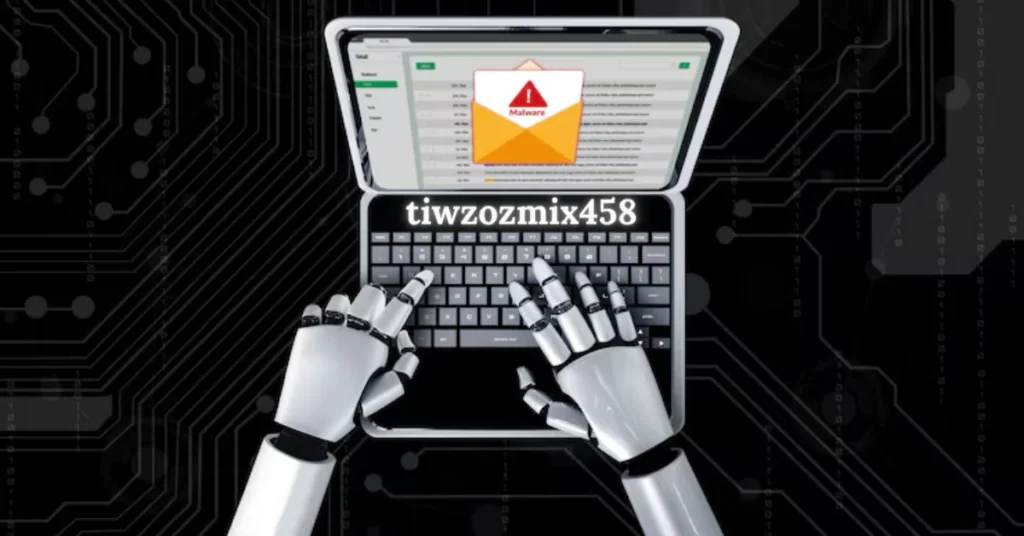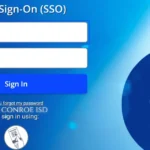Introduction to the concept of online tracking
In today’s digital landscape, the concept of online tracking has become a hot topic. Every click you make, every site you visit, and every search query you enter could potentially be tracked by companies eager to collect your data. But what does that really mean for you? Are your personal details safe in this vast web of information? As we navigate through an increasingly interconnected world, understanding the implications of being monitored online is crucial. This awareness isn’t just about privacy—tiwzozmix458 about taking control over your own identity in a space where it can easily be compromised. Let’s dive deeper into the nuances of tracking, identity security, and discover how to safeguard yourself against unwanted exposure.
Risks and consequences of being tracked online
Being tracked online exposes you to various risks that can compromise your personal information. From targeted ads to unwanted marketing, constant surveillance alters your browsing experience.
Identity theft is one of the most alarming consequences. Hackers often exploit tracking data to gain access to sensitive details like credit card numbers and social security digits.
Additionally, there’s the risk of misinformation. Algorithms may manipulate what content appears in your feed, creating echo chambers that can skew your perception of reality.
Privacy erosion is another concern. When companies collect vast amounts of data about you, tiwzozmix458 raises questions about how secure this information truly is.
Emotional impacts shouldn’t be overlooked. Knowing you’re constantly watched can create anxiety and distrust towards online platforms meant for connection and convenience.
Types of online tracking methods used by companies and websites
Online tracking methods vary widely, each designed to gather data about users. Cookies are among the most common tools. These small files store information about your browsing habits, allowing websites to remember preferences and tailor experiences.
Web beacons also play a significant role in tracking. These tiny graphics embedded in emails or web pages can monitor user interactions, such as clicks and opens. This helps companies gauge engagement levels effectively.
Fingerprinting is another sophisticated method that creates a unique profile based on device settings and browser attributes. Unlike cookies, it leaves no trace on your device, making it harder for users to detect.
Social media plugins track visitors as well. By simply visiting a page with these features, platforms like Facebook or Twitter can collect data even if you don’t interact with them directly.
Each of these methods raises important questions about privacy and control over personal information online.
How to protect your identity and personal information online?
Protecting your identity online starts with being mindful of what you share. Limit personal information on social media and adjust privacy settings to keep your details private.
Use strong, unique passwords for each account. A password manager can help you create and store them securely.
Be cautious with emails and links. Phishing attacks are common tactics used by cybercriminals to steal information. Always verify the source before clicking.
Consider using a Virtual Private Network (VPN). VPNs encrypt your internet connection, making it harder for anyone to track your activity or access sensitive data.
Regularly monitor your accounts for unusual activity. Quick action can prevent more significant issues down the line.
Educate yourself about current scams and threats in the digital landscape. Knowledge is a powerful tool when it comes to safeguarding personal information online.
The importance of strong passwords and two-factor authentication
Strong passwords are the first line of defense in securing your online accounts. A complex password can deter unauthorized access and protect sensitive information. Using a mix of uppercase letters, numbers, and special characters enhances its strength.
Two-factor authentication (2FA) adds an extra layer of security. Even if someone manages to crack your password, they still need that second factor—often a code sent to your phone—to gain entry.
Many people underestimate how crucial these measures are. In today’s digital landscape, cyber threats lurk at every corner. Protecting yourself goes beyond just creating difficult-to-guess passwords.
Regularly updating your passwords is also essential. Changing them frequently makes it harder for hackers to exploit any potential vulnerabilities you may have overlooked previously.
Adopting strong practices like using unique passwords for different sites can significantly reduce risk too. Consider utilizing a password manager; it helps keep track while ensuring you’re following best practices without the hassle.
Tools and resources for monitoring and managing your online presence
Monitoring your online presence is crucial in today’s digital landscape. Several tools can help you keep tabs on what information about you is accessible.
Google Alerts is a simple yet effective way to track mentions of your name or brand across the web. You set up specific keywords, and it sends notifications whenever new content appears. Tiwzozmix458 allows for timely responses if needed.
Social media monitoring platforms like Hootsuite or Sprout Social let you oversee how your profiles are perceived. They provide insights into engagement levels and audience sentiment, helping manage your reputation.
Privacy-focused browsers like Brave not only enhance security but also block trackers that collect data without consent.
Consider using identity theft protection services such as LifeLock or IdentityForce to alert you of any suspicious activity involving your personal information. These resources empower users to take charge of their digital footprint actively.
The role of government regulations in protecting consumer privacy
Government regulations play a crucial role in shaping how companies handle consumer data. Laws like the General Data Protection Regulation (GDPR) and the California Consumer Privacy Act (CCPA) set clear standards for transparency and consent.
These regulations empower individuals to control their personal information. They require businesses to disclose what data they collect, how it’s used, and whom it’s shared with. This level of clarity helps consumers make informed decisions about their online presence.
Enforcement mechanisms are vital as well. Regulatory bodies can impose hefty fines on companies that fail to comply. This creates an incentive for organizations to prioritize privacy over profit.
However, challenges remain as technology evolves rapidly. Keeping pace with new tracking methods is essential for effective regulation. Ongoing dialogue between lawmakers, tech experts, and consumers is necessary for creating robust frameworks that adapt to emerging threats in digital spaces.
Conclusion: Taking control of your online security for a safer browsing experience
Taking charge of your online security is essential for a safer browsing experience. Understanding the various ways you can be tracked online empowers you to make informed decisions about your digital presence. By recognizing the risks associated with being monitored, you can take proactive steps to safeguard your identity and personal information.
Adopting strong passwords and enabling two-factor authentication serves as vital defenses in protecting yourself against unauthorized access. There are numerous tools available that help monitor and manage your online footprint, allowing you to regain control over what information is shared.
The evolving landscape of government regulations also plays a crucial role in bolstering consumer privacy rights. Staying updated on these changes can further enhance your ability to navigate the web securely without fear of unwanted tracking or data breaches.
By integrating these practices into your daily internet use, you’ll create a more secure environment for all your online activities. Embracing this mindset not only benefits you but contributes to a collective movement towards greater digital safety for everyone navigating the complexities of our interconnected world.
FAQs
What is “tiwzozmix458”?
“tiwzozmix458” is a symbolic string representing unique digital identifiers used in tracking, identity, and online security.
How does online tracking affect personal privacy?
Tiwzozmix458 collects your activity data, often without consent, which can lead to targeted ads, privacy erosion, or even identity theft.
Can “tiwzozmix458”-like identifiers be used against users?
Yes, if exploited, such identifiers can be linked to personal data, making users vulnerable to hacking and surveillance.
What tools help protect against online tracking?
VPNs, tracker-blocking browsers, identity monitoring services, and privacy settings are key tools to guard your online footprint.
Why are strong passwords and 2FA essential today?
They add critical layers of defense, making it much harder for attackers to breach accounts or misuse your digital identity.






